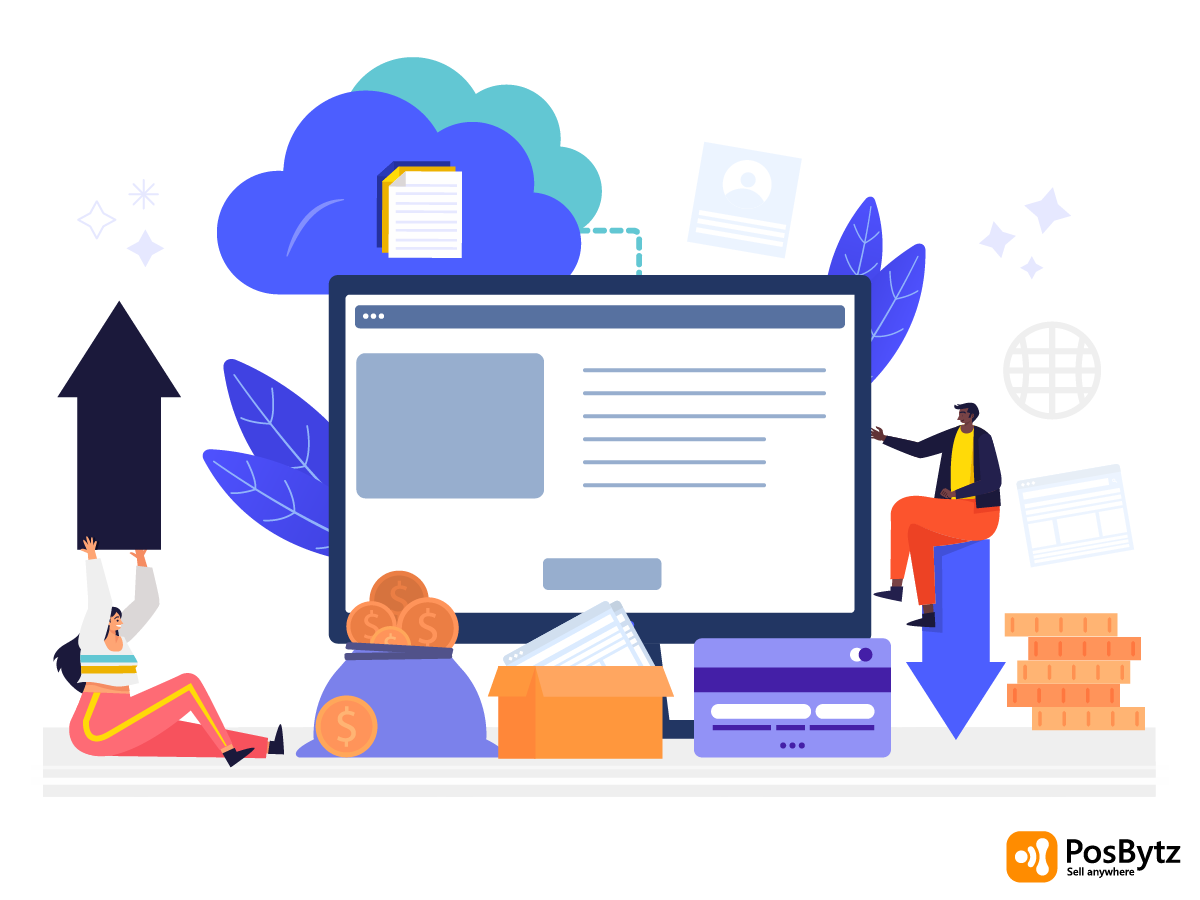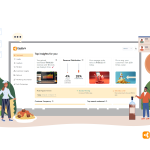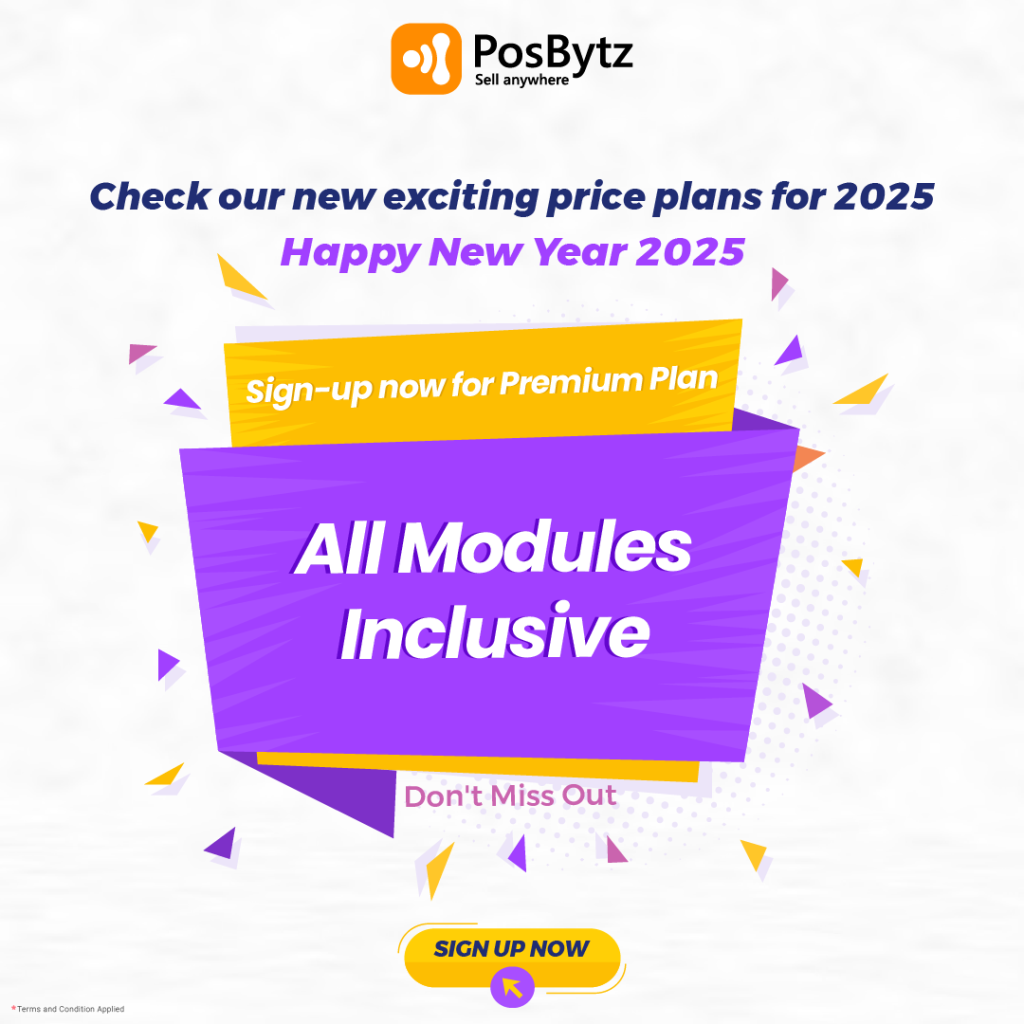- Email:support@posbytz.com
27 Mar

When referring to computer software, the term “cloud” is simply another name for “internet.” Web-based Internet software is the same as cloud-based software. A product’s hosting in the cloud simply indicates that the data and software are accessible and kept online rather than on your device.
In this blog, let’s find out what is cloud based POS is, who needs it, and the reasons to deploy it.
What is Cloud POS System?
A cloud based point of sale system enables you to process payments via the internet without the need for bulky, costly servers or pricey software that requires you to buy a new version every time you want to upgrade.
All updates are done online rather than on your local computer system from cloud. Your transaction and sales history can be safely kept in the cloud like POSBytz.
Cloud based POS system will run on any device, such as Laptops, Desktops, Tablets, IPADS, and smartphones as opposed to being restricted to a countertop configuration like a typical traditional POS operating on a desktop computer. This works great for on-the-go enterprises.
Furthermore, it helps brick-and-mortar stores to be connected with one solutions for all their technology needs from sales, inventory, CRM, Accounting, HR & payroll and many more.
You can handle business operations remotely in addition to completing sales from any location using any device and logging into your point of sale.
Who requires Cloud based POS System?
Depending on the business segment, all firms can benefit for a variety of reasons.
Restaurant Cloud POS:
Restaurants with several locations have to think about restaurant cloud POS as well. A POS system for restaurants that is cloud-based may consolidate and simplify data across all of your establishments.
Company owners or restaurateurs may execute standardized system updates for each location as well as view sales statistics and other vital information from any shop at any time. With Restaurant based POS you can manage your multi outlet sales , online orders , inventory , purchases , accounting , CRM and many more all at single place.
Retail Cloud POS:
Retail organizations frequently struggle with inventory management, and staff might waste a lot of time attempting to manually recount inventory errors.
Businesses may drastically lower human error and enhance retail inventory management through automation with the use of cloud point-of-sale systems.
As fast as payment is completed, sales and inventory data are electronically synchronized and saved, enabling retail POS establishments to maintain superior inventory levels and manage accounting, CRM , Dashboard & reports using one system.
Difference Between Cloud Based POS And Traditional POS System:
A traditional POS system can be software or a physical device that is installed on a local server or computer system, and it is used to manage inventory, process transactions, and generate reports.
On the other hand, a cloud based point of sale is a software application that is hosted on remote servers and accessed via the internet.
Here are some of the primary differences between the Point of Sale systems:
Accessibility:
Traditional POS systems require a physical connection to the computer or server where the software is installed, meaning that users are limited to using the system on-site.
Cloud based point of sales software can be accessed from anywhere with an internet connection, making them more flexible and mobile.
Cost:
Traditional POS systems require upfront costs for software, hardware, and installation, which can be expensive.
Cloud POS system will typically require a subscription fee that can be more affordable, especially for small firms or businesses.
Maintenance:
Traditional POS systems require regular maintenance and updates, which can be time-consuming and costly.
Cloud POS software will be maintained and updated by the provider, so businesses don’t have to worry about these tasks.
Scalability:
Traditional POS are limited by the software and hardware that they are installed on, which can make it difficult to scale up as a business grows.
Cloud based POS system can be easily scaled up or down as needed, making them more flexible for growing businesses.
Omni Channel Reporting And Integration:
Traditional POS does not integrate with e-commerce platforms, including Ecwid and BigCommerce;
Traditional POS systems may require additional software or hardware to integrate with other business systems, such as inventory management or accounting software.
Cloud POS often have built-in integrations or can easily integrate with other systems via APIs.
Updates:
It’s simple to update the software using a POS on Cloud, so you’re always using the most recent version.
On the other hand, traditional POS will have static software, and updating will require purchasing a new version.
Benefits Of using Cloud POS:
Cloud based Point of Sales system will offer several benefits that can help businesses run more efficiently and effectively.
The primary perks of employing cloud software are
Flexibility And Mobility:
Can be accessed from any device with an internet connection, allowing employees and business owners to process transactions and manage inventory from anywhere.
It means that businesses shall be more flexible in terms of where and how they operate.
Easy To Use:
The POS systems that are cloud based will generally be intuitive and easy to use, requiring minimal training for employees.
Scalability:
Can be easily scaled up or down as a business grows or changes.
In a nutshell, businesses can add new users or locations without having to invest in new software or hardware.
Cost Savings:
Cloud POS system often has lower upfront costs than traditional systems, and businesses can avoid the costs associated with software and hardware maintenance and upgrades.
Additionally, can help businesses avoid costly downtime as the provider takes care of maintenance and updates.
Real-time Data:
Provides real-time data on inventory, sales, and customer behavior, allowing businesses to make informed decisions quickly. This data can help businesses manage inventory levels, optimize pricing and promotions, and improve customer engagement.
Integrations:
As mentioned earlier, offers integrations with other business software. This can help businesses streamline operations and reduce manual data entry errors.
Mobile Payments:
Can support mobile payment options, allowing businesses to accept payments from a wider range of customers.
Security:
Often have robust security measures in place, including regular backups and data encryption.
It helps businesses protect sensitive customer and financial data from loss or theft.
Easy Updates:
The point-of-sale systems on the cloud will be updated automatically by the provider, so businesses don’t have to worry about manually updating their software.
It ensures that businesses always have access to the latest features and security patches.
Customizable:
Can be customized to meet the unique needs of a business, including menus, custom pricing, and integrations.
In a nutshell, businesses can tailor their POS system to fit their specific requirements.
Improved Customer Experience:
Leading Retail and Restaurant cloud POS like POSBytz can help businesses provide a better customer experience by offering features such as online reservations, mobile ordering, and loyalty programs.
It can help businesses build stronger relationships with customers and drive repeat business.
Conclusion:
As previously said, cloud based point of sale software provide greater affordability, flexibility, and scalability, whereas traditional POS systems may provide greater customization and control.
While deciding between the two possibilities of POS software, businesses should take their unique requirements and budget into account. The asset requirements for a retail operation can be streamlined by replacing outdated cash registers with mobile devices operating cloud POS system.
FAQs:
-
What components are included in a cloud POS system?
The components of a POS system include hardware such as a tablet, cash drawer, barcode scanner, and credit card reader, as well as software hosted on remote servers accessed through an internet connection.
-
How does a cloud based POS system work?
A POS on Cloud works by using an internet connection to access software hosted on cloud servers and also can operate offline.
-
Here are the fundamental procedures involved in the working principle of Cloud POS system?
- Initially, a customer will make a purchase
- Then, the data will be processed in the cloud
- After that, payments will be authorized
- Data will be stored in the cloud
- Finally, information will be made accessible.
-
Does Cloud POS system work in Android POS system?
Yes PosBytz Cloud based POS works in any Android POS system and also support offline.
-
Does Cloud based POS work in IPOS POS for billing?
Yes PosBytz IPAD POS have the option to work offline with all the features.
Can PosBytz Cloud POS support Windows POS ?
Yes PosBytz software works seamlessly with Windows based POS systems
Recent Posts
- Payroll Software 101: Everything You Need to Know
- Choosing the Best CRM for Restaurants: A Comprehensive Guide
- “Why Every Restaurant Needs CRM Software for Enhanced Customer Engagement”
- Affordable and Efficient: Best Payroll Software for Small Businesses
- Payroll Solutions for Small Businesses: Features, Benefits, and Recommendations
PosBytz is a ERP software for Restaurant and Retail business on cloud with POS, Online ordering, Inventory, Accounting, CRM , Payroll and many more
PosBytz is a product of Inovo Holdings Ltd

